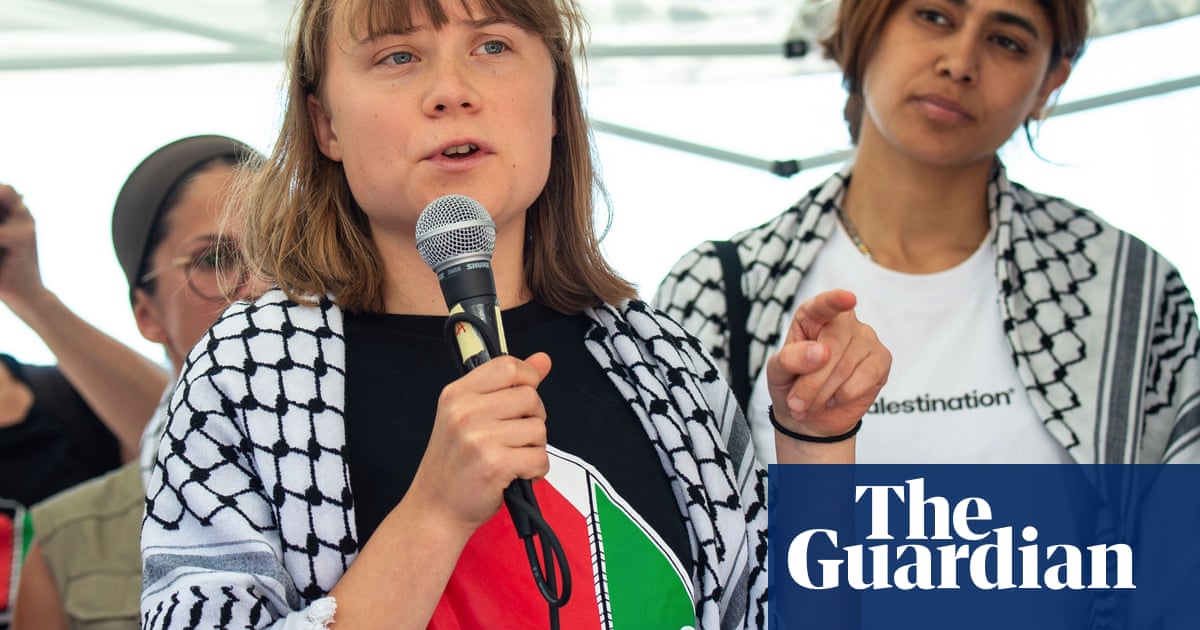The climate campaignerGreta Thunbergand 11 other activists have set sail for Gaza on a ship aimed at “breaking Israel’s siege” of the devastated territory, organisers have said.
The sailing boat Madleen – operated by the activist group Freedom Flotilla Coalition – departed from the port of Catania in Sicily, southernItaly, on Sunday.
It would try to reach the shores of theGazaStrip to bring in some aid and raise “international awareness” of the continuing humanitarian crisis, the activists said at a press conference on Sunday, before the vessel departed.
“We are doing this because, no matter what odds we are against, we have to keep trying,” Thunberg said, bursting into tears during her speech.
“Because the moment we stop trying is when we lose our humanity. And, no matter how dangerous this mission is, it’s not even near as dangerous as the silence of the entire world in the face of the livestreamed genocide.”
Israel has vehemently rejected allegations of genocide.
In mid-May, Israel slightly eased its blockade of Gaza after nearly three months, allowing a limited amount of humanitarian aid into the territory, but experts have warned that Gaza is at risk of famine if more aid is not brought in.
UN agencies and major aid groups say Israeli restrictions, the breakdown of law and order, and widespread looting make it extremely difficult to deliver aid to Gaza’s roughly 2 million Palestinians.
Among those joining the crew of the Madleen are the Game of Thrones actor Liam Cunningham and Rima Hassan, a French member of the European parliament who is of Palestinian descent; she has been barred from entering Israel due to her active opposition to the Israeli assault on Gaza.
The activists expect to take seven days to get to their destination, if they are not stopped.
Thunberg, who became an internationally famous climate activist after organising massive protests in her native Sweden, had been due to board a previous Freedom Flotilla shiplast month. That attempt to reach Gaza by sea in early May failed after another of the group’s vessels, the Conscience, was allegedly attacked by two drones while sailing in international waters off the coast of Malta.
The group blamed Israel for the attack, which damaged the front section of the ship, in the latest confrontation over efforts to send assistance to the Palestinian territory devastated by nearly 19 months of war.
“We are breaking the siege of Gaza by sea, but that’s part of a broader strategy of mobilisations that will also attempt to break the siege by land,” said the activist Thiago Ávila.
Ávila cited the Global March to Gaza – an international initiative also open to doctors, lawyers and media – which is due to leave Egypt and reach the Rafah crossing in mid-June. Organisers plan to stage a protest there, demanding that Israel stop the Gaza offensive and reopen the border.
